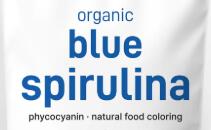Who should not take blue spirulina?

Blue spirulina is a popular supplement extracted from Arthrospira platensis, rich in protein, antioxidants, and phycocyanin—the pigment responsible for its vibrant color. It’s praised for immune support, energy enhancement, and anti-inflammatory properties. While generally considered safe, it’s not suitable for everyone. Understanding who should avoid blue spirulina is essential for responsible and informed supplement use.
Individuals with Phenylketonuria (PKU)
Phenylketonuria is a genetic disorder where the body cannot properly process phenylalanine, an amino acid found in many protein-rich foods. Blue spirulina contains high levels of amino acids, including phenylalanine. For people with PKU, even small amounts can lead to serious neurological complications, including brain damage. Blue spirulina should be completely avoided in such cases.
People with Autoimmune Conditions
Blue spirulina has immune-stimulating effects, which may be beneficial for healthy individuals. However, this can be a double-edged sword for those with autoimmune diseases such as lupus, rheumatoid arthritis, or multiple sclerosis.
Immune Activation Risks
Stimulating the immune system in individuals whose immune function is already overactive may aggravate their condition. Blue spirulina can potentially worsen inflammation and trigger symptom flare-ups in these patients.
Professional Guidance Required
Anyone with an autoimmune diagnosis should consult their healthcare provider before using spirulina supplements. They may need to monitor markers of immune activity to assess safety on a case-by-case basis.
Those Allergic to Algae or Seafood
Though technically cyanobacteria, blue spirulina is sometimes grouped with algae-based products. Individuals with known allergies to algae, seaweed, or even certain types of seafood may experience allergic reactions ranging from mild skin irritation to anaphylaxis.
Cross-Reactivity Considerations
While not all seafood allergies translate to spirulina sensitivity, there is some evidence of cross-reactivity in sensitive individuals. Symptoms may include itching, swelling, or gastrointestinal discomfort. An allergy test may help confirm potential risks.
Pregnant and Breastfeeding Women
The safety of blue spirulina during pregnancy and breastfeeding has not been well established in scientific studies. Although natural, its high nutrient density and potential for contamination if not sourced properly present concerns.
Lack of Clinical Safety Data
There are no large-scale studies confirming that blue spirulina is safe for fetal development or infant health during nursing. Until more is known, healthcare providers generally recommend that pregnant and breastfeeding women avoid blue spirulina or use it only under supervision.
Contamination Risk from Poor Sources
If harvested or processed improperly, spirulina products may contain heavy metals, toxins, or bacteria. These pose significant risks during pregnancy, where even trace contaminants could affect a developing fetus.
People on Anticoagulant Medications
Blue spirulina contains vitamin K, which plays a key role in blood clotting. For those on blood-thinning medications like warfarin, high vitamin K intake can interfere with medication effectiveness and increase the risk of blood clots.
Monitoring INR Levels
Patients on anticoagulants should have their blood clotting status (INR) closely monitored when making any changes to vitamin K intake. Supplementing with blue spirulina may lead to fluctuations that require medication adjustment.
